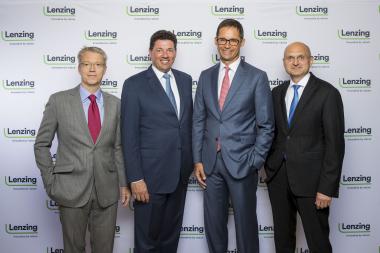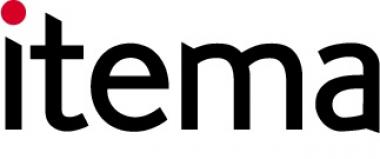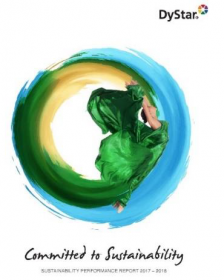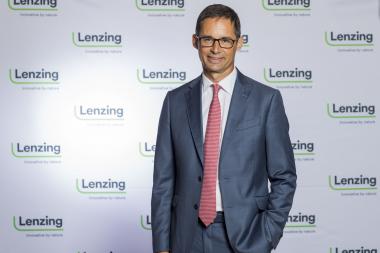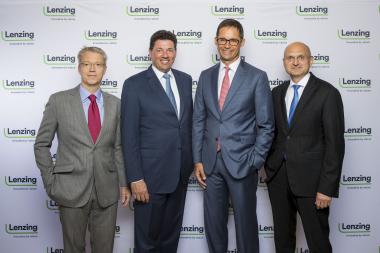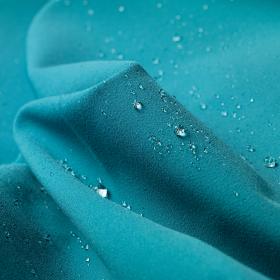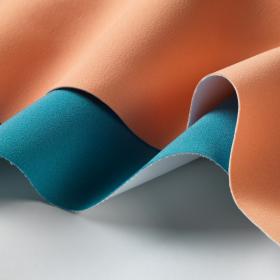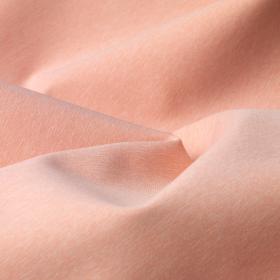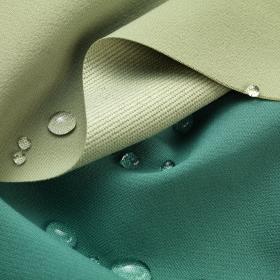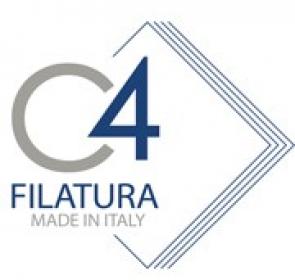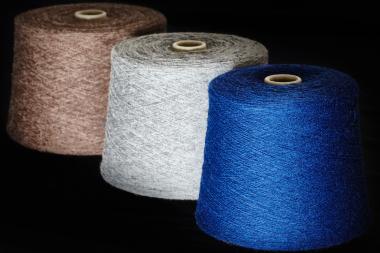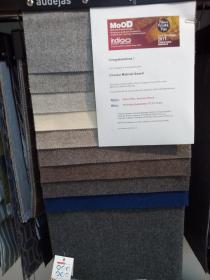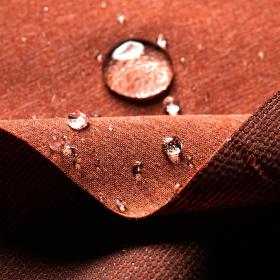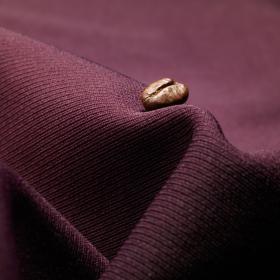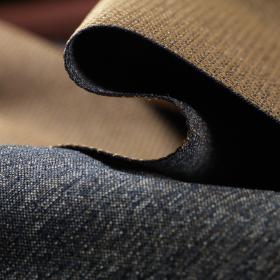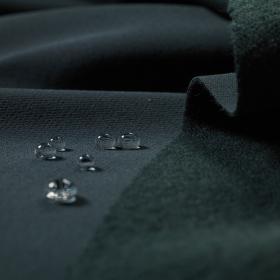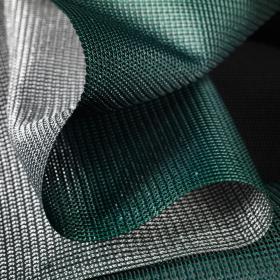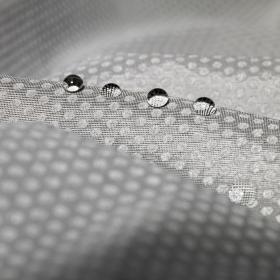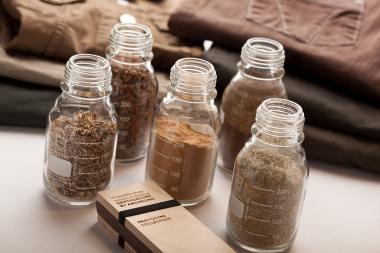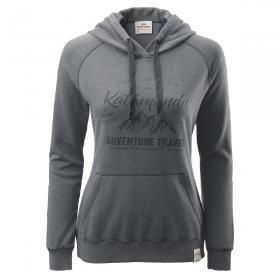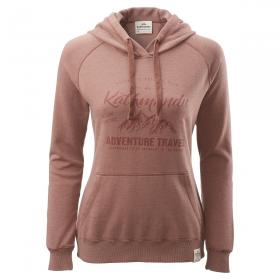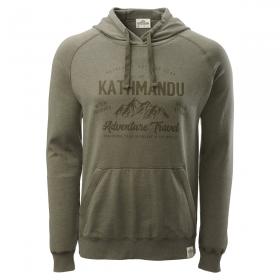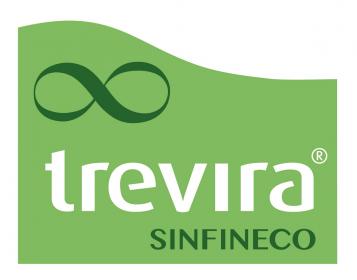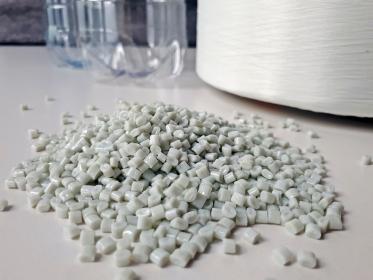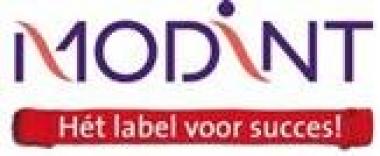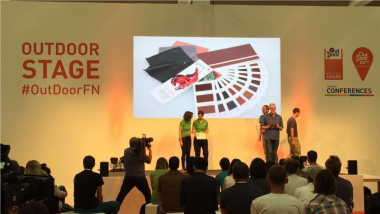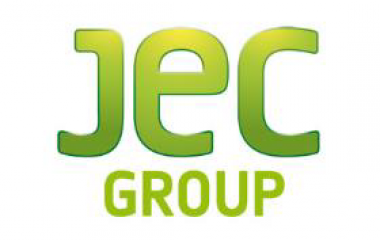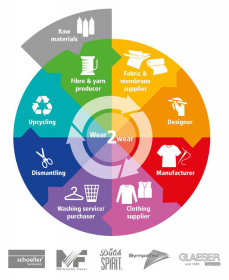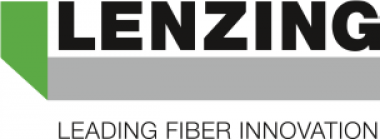Lenzing Group reports solid results in a demanding market environment
Decline in revenue due to lower prices for standard viscose, less favorable currencies and lower production volume
- Pressure on prices for key raw materials remains high
- Positive impact due to focus on specialty fibers and further optimization of the product mix
- Expansion project in Mobile temporarily mothballed
- Acquisition of the remaining 30 percent of Lenzing (Nanjing) Fibers Co. Ltd.
The Lenzing Group recorded a solid business development in the first three quarters of 2018. The decline in revenue and earnings compared with the same period of the previous year was essentially based on a mix of lower prices for standard viscose, more unfavorable exchange rates and price increases for key raw materials. The Lenzing Group’s strategic orientation with a focus on specialty fibers had a positive impact in this environment.
Revenue decreased by 5.2 percent to EUR 1,636.2 mn over the comparative period of the previous year. Apart from the high starting base, this was primarily attributable to the expected challenging market environment for standard viscose, less favorable exchange rates and lower production volume. EBITDA (earnings before interest, tax, depreciation and amortization) recorded a decline by 26.8 percent to EUR 290.6 mn due to price increases for key raw materials and higher energy and dissolving wood pulp prices. The EBITDA margin dropped from 23 percent in the first three quarters of the previous year to 17.8 percent. EBIT (earnings before interest and tax) fell by 36.2 percent to EUR 190.3 mn, leading to a lower EBIT margin of 11.6 percent (01-09/2017: 17.3 percent). Net profit for the period dropped by 39 percent from EUR 219.3 mn in the previous year to EUR 133.8 mn. Earnings per share equaled EUR 5.06 (01-09/2017: EUR 8.12).
“The Lenzing Group is currently operating in a challenging environment. Against this background, we are satisfied with the solid business development and the corporate strategy sCore TEN has a positive impact. The new production line in Heiligenkreuz started up successfully and customers’ feedback has been positive,” says Stefan Doboczky, Chief Executive Officer of the Lenzing Group. “While many viscose producers are faced with a very tense profit situation, we are well positioned due to our specialty strategy and still expect a satisfactory full year”, Doboczky adds.
Key strategic measures were implemented during the first three quarters of 2018 in line with the sCore TEN strategy. The start-up of new capacities for lyocell fibers in Heiligenkreuz, the production start of LENZING™ ECOVERO™ fibers at the Nanjing site and the investment in another pilot line for TENCEL™ Luxe filaments are important steps to accomplish the goal of increasing the share of specialty fibers in total revenue.
Project in Mobile temporarily mothballed
Due to the decision to temporarily mothball the lyocell expansion project in Mobile, Alabama (USA), in view of the buoyant US labor market and trade tensions between the major trading blocks, the implementation of the expansion plan for specialty staple fibers will be slowed down. The Lenzing Group will put all its effort to readjust the execution of its growth plan to meet strong market demand for its lyocell fibers. This includes an increased focus on the lyocell expansion project in Prachinburi (Thailand).
Advancing forward solutions
Regarding the capacity expansion for specialty products such as TENCEL™ Luxe filaments and LENZING™ ECOVERO™ viscose fibers, Lenzing is still on track. After the introduction of TENCEL™ Luxe branded lyocell filament yarns in the previous year, Lenzing continues to drive innovations in the area of the value chain. In September, the company also announced the successful development of the LENZING™ Web Technology, a new technology platform focusing on sustainable nonwoven products, which will lead to new market opportunities for the industry. Following several years of research and development work and investments totaling EUR 26 mn, the pilot plant at the headquarters in Lenzing has been successfully put into operation.
Largest dissolving wood pulp line worldwide
At the end of June, the Lenzing Group and Duratex, the largest producer of industrialized wood panels of the southern hemisphere, announced that they had agreed on the terms and conditions to form a joint venture to investigate building the largest single line dissolving wood pulp plant in the state of Minas Gerais (Brazil). This decision supports the self-supply with dissolving wood pulp and the growth in specialty fibers. The joint venture is investigating the construction of a 450,000 t dissolving wood pulp plant, which is expected to become the largest and most competitive single line dissolving wood pulp plant in the world. The final investment decisionto build the dissolving wood pulp plant is subject to the outcome of the basic engineering studies and the approval by the respective supervisory boards.
Acquisition of Chinese operation
At the beginning of November the takeover by the Lenzing Group of the remaining 30 percent of its Chinese subsidiary Lenzing (Nanjing) Fibers Co. Ltd. (LNF) from its state-owned joint venture partner NCFC was completed. After closing of the transaction, the Lenzing Group will hold 100 percent of LNF. The acquisition will have a negative impact on net profit of approx. EUR 21 mn for the fiscal year 2018. The purchase of the shares supports Lenzing’s strategic growth as a producer of specialty fibers from the renewable raw material wood in China and worldwide. It paves the way to setting up further production lines for specialty fibers. Lenzing wants to convert LNF into a specialty fibers hub over time.
Expansion of capacities
CAPEX (investments in intangible assets and property, plant and equipment) rose by 35.5 percent year-on-year to EUR 174.1 mn in the first three quarters of 2018. This is primarily attributable to capacity expansions in Heiligenkreuz and the expansion of the existing dissolving wood pulp plant in Lenzing as well as the investments made so far in Mobile.
Outlook
Demand development on the global fiber market remains positive. Lenzing expects wood-based cellulosic fibers to continue to grow at a higher rate than the overall fiber market. In a challenging market environment the Lenzing Group expects solid results for 2018, albeit lower than in the outstanding last two years.
For 2019, Lenzing expects standard viscose markets to remain under pressure because of an ongoing oversupply and very high raw material prices. Lenzing’s specialty fiber business is expected to continue the very positive development.
The above-mentioned development reassures the Lenzing Group in its chosen corporate strategy sCore TEN. Lenzing is very well positioned in this market environment and will continue its consistent focus on growth with specialty fibers.
Lenzing Group
Lenzing AG


